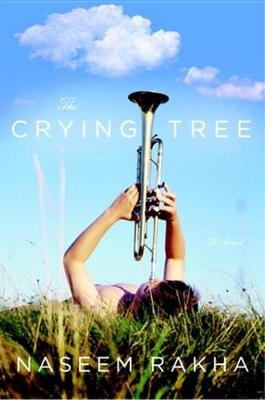Reviewed by Leah on
The first I had heard of The Crying Tree was when it was picked as one of Richard and Judy’s Book Club 2010 picks, it sounded interesting so when I was offered the chance to review it, I said yes as it sounded like a Jodi Picoult novel and I’m a huge fan of Jodi P. I was really looking forward to reading the book because novels about forgiveness are always hugely interesting, as the author can approach the topic from a number of ways. Because I had some spare time over the weekend, I decided to start the book and I managed to finish it by Sunday evening. One thing I’ll say about the book is that it definitely wasn’t dull!
The Crying Tree begins with the Oregon State Penitentiary’s Superintendent Tab Mason receiving the death warrant for Daniel Robbins’ death in 2004. We then travel back to early 80s just before the Stanley’s move to Oregon and we follow their lives up until that fateful day when their son, Shep, is murdered by Daniel Robbins. We also travel back to the present day – 2004 – and we lead up from 1985 through to 2004 and how the Stanley’s dealt with their son’s death. It was an interesting way to have the novel set out, especially as it was also separated into separate parts – which I felt was a bit unnecessary – and it was interesting knowing what was happening in the present day in regards to Robbins and his upcoming death as well as learning how the Stanley family had disintegrated since that fateful day.
I wasn’t completely sure what I made of the characters. Because we follow so many it’s hard to keep track of who exactly is who. The Stanley family are a difficult bunch to work out. Irene seemed like your typical grieving mum, and I found it easy to be sympathetic for her. I didn’t really care for Nate Stanley, I knew right from the off that there was something going on with him, and when we learned what it wasn’t, it didn’t exactly endear me to him any more. My favourite character from the Stanley family was definitely Bliss, although it’s hard to judge Shep since he barely features in the novel. Another character I quite liked was Superintendent Tab Mason, his struggle between knowing Robbins had to die, but not really wanting to do it made for great reading and he was definitely the most well-rounded character of them all. As for the man in the center of the novel, Daniel Robbins, I surprised myself for actually liking him. He was quite the character and despite everything, there was something in me that felt kind of sad that he was potentially going to die by lethal injection.
Many subjects are covered throughout the novel: forgiveness, acceptance, religion are the notable ones. God is mentioned fairly early on and I was very worried it would turn into a religious novel, but it didn’t, not at all. Forgiveness is a very difficult topic to really explore in a novel because it’s surely debatable depending on whomever is read the novel as to whether the forgiveness is a good thing or a bad thing. I liked the forgiveness aspect to the book and I thought Naseem Rakha explored it very well indeed. I have no idea what I would do in a situation like Irene’s, but I know that staying angry forever probably isn’t the best option and I could see why Irene chose to forgive, when not everybody would do that.
The only complaint I had with The Crying Tree is the way it’s written, which is kind of what ruined the book for me. It’s written in a very choppy style. It’s told in third-person, chopping and changing from character to character and I did, at times, find it hard to keep up. The writing style probably works well for the novel but I found it difficult to get to grips with, the choppy-ness was just a bit difficult for me to really get the flow of the book. I also think the ending was a bit rushed. I would have liked an Epilogue to maybe wrap things up a bit more, set maybe a few years after 2004, to see how the characters had moved on after all that they had gone through. I did, however, find it a very absorbing novel and I was desperate to learn of all the secrets and the suspense certainly kept me turning the pages. I would definitely recommend this book, as it was a super quick read for me and one I did, despite my complaints, enjoy.
Reading updates
- Started reading
- 26 September, 2010: Finished reading
- 26 September, 2010: Reviewed
